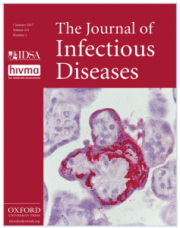Posted on September 15, 2015
Source: the Journal of Infectious Diseases

CD4+ T-Cell-Dependent Reduction in Hepatitis C Virus-Specific Neutralizing Antibody Responses After Coinfection With Human Immunodeficiency Virus
Bailey JR, Dowd KA, Snider AE, Osburn WO, Mehta SH, Kirk GD, Thomas DL, Ray SC
BACKGROUND:
Human immunodeficiency virus (HIV) infection leads to lower rates of hepatitis C virus (HCV) clearance after acute infection, higher HCV viremia, and accelerated progression of HCV-related fibrosis. The mechanisms underlying this acceleration of HCV progression by HIV are poorly understood, but HIV-induced dysfunction in the anti-HCV humoral immune response may play a role.
METHODS:
To define the effect of HIV coinfection on the anti-HCV antibody response, we measured anti-HCV envelope binding antibody titers, neutralizing antibody (nAb) titers, and nAb breadth of serum from HCV-infected subjects isolated longitudinally before and after incident HIV infection.
RESULTS:
A significant reduction in HCV envelope-specific binding antibody and nAb titers was detected in subjects with CD4(+) T-cell counts <350/mm(3) after HIV infection, and subjects with CD4(+) T-cell counts <200/mm(3) also showed a reduction in nAb breadth. Subjects who maintained CD4(+) T-cell counts ≥350/mm(3) displayed little to no decline in antibody levels.
CONCLUSIONS:
Depletion of CD4(+) T cells by HIV infection results in a global decline in the anti-HCV envelope antibody response, including binding antibody titers, nAb titers, and nAb breadth.